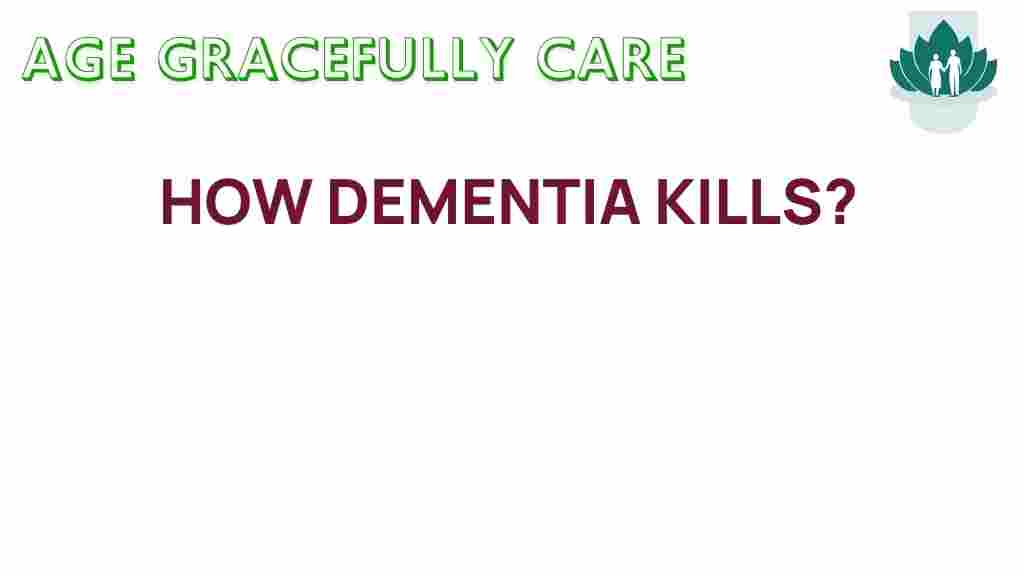Unraveling the Mysteries of How Dementia Affects the Mind
Dementia is a broad term used to describe a range of symptoms associated with cognitive decline, impacting memory, thinking, and social abilities to the extent that it interferes with daily life. As we age, the risk of neurodegeneration increases, leading to conditions such as Alzheimer’s disease, which is the most common form of dementia. Understanding the effects of dementia on brain health is crucial for caregivers and families as they navigate the challenges of mental deterioration in the elderly.
Understanding Dementia and Its Impact
Dementia is not a single disease but a general term that encompasses various neurological conditions characterized by the decline in cognitive functions. Here’s a closer look at how dementia affects the mind:
- Cognitive Decline: One of the most significant effects of dementia is cognitive decline, which includes problems with memory, reasoning, and judgment.
- Memory Loss: Individuals with dementia often experience memory loss, particularly short-term memory. They may forget recent conversations, appointments, or even the names of loved ones.
- Neurodegeneration: This refers to the progressive degeneration of nerve cells in the brain, which can lead to various forms of dementia, including Alzheimer’s.
- Mental Deterioration: Over time, dementia leads to a decline in mental capabilities, making it difficult for individuals to perform daily tasks.
Common Types of Dementia
While dementia encompasses a range of disorders, some of the most common types include:
- Alzheimer’s Disease: The most prevalent form of dementia, characterized by gradual memory loss and cognitive decline.
- Vascular Dementia: Often caused by strokes or other conditions that affect blood flow to the brain.
- Lewy Body Dementia: This type features abnormal protein deposits in the brain, leading to cognitive fluctuations and visual hallucinations.
- Frontotemporal Dementia: A less common form that primarily affects the frontal and temporal lobes, leading to personality changes and difficulties with language.
How Dementia Affects Brain Health
As dementia progresses, it brings about significant changes in brain health. Here’s how these changes manifest:
- Neurotransmitter Imbalances: Dementia can disrupt the balance of neurotransmitters in the brain, affecting communication between nerve cells.
- Brain Atrophy: Brain cells begin to shrink and die, leading to reduced brain mass and impaired function.
- Development of Plaques and Tangles: In Alzheimer’s, abnormal protein deposits form plaques and tangles, disrupting normal brain function.
Recognizing the Signs of Dementia
Identifying the signs and symptoms of dementia early can lead to better management and care. Here are some common indicators:
- Memory Loss: Frequently forgetting recent events or important dates.
- Difficulty Performing Familiar Tasks: Struggling with everyday tasks like cooking or managing finances.
- Language Problems: Trouble finding the right words or following a conversation.
- Disorientation: Confusion about time, place, and people.
- Changes in Mood and Personality: Exhibiting mood swings, withdrawal, or anxiety.
Diagnosing Dementia
If you or someone you know is exhibiting signs of cognitive decline, it is essential to consult a healthcare professional. Diagnosis may involve:
- Medical History Review: Discussing symptoms, family history, and overall health.
- Physical and Neurological Exam: Assessing reflexes, coordination, and other cognitive functions.
- Cognitive Testing: Administering tests to evaluate memory, problem-solving, and attention.
- Brain Imaging: Using MRI or CT scans to identify changes in the brain.
Step-by-Step Guide to Caregiving for Individuals with Dementia
Caregiving for someone with dementia can be challenging but rewarding. Here’s a step-by-step guide to providing effective care:
Step 1: Educate Yourself
Understanding dementia and its effects can help you provide better care. Resources such as Alzheimer’s Association offer valuable information.
Step 2: Create a Safe Environment
Ensure that the living space is safe and accessible. Remove hazards and provide clear signage to help with orientation.
Step 3: Establish a Routine
Consistency can reduce confusion. Create a daily schedule that includes meals, activities, and rest periods.
Step 4: Communicate Effectively
Use clear and simple language. Maintain eye contact and be patient, allowing them time to respond.
Step 5: Encourage Independence
Allow individuals to perform tasks they can manage to promote a sense of independence and self-esteem.
Step 6: Seek Support
Join caregiver support groups for advice and emotional support. Connecting with others can provide valuable insights and relief.
Step 7: Take Care of Yourself
Caregiving can be exhausting. Prioritize your health and well-being by taking breaks and seeking help when needed.
Troubleshooting Tips for Caregivers
As a caregiver, you may encounter various challenges. Here are some troubleshooting tips:
- Dealing with Agitation: If the individual becomes agitated, try redirecting their attention to a favorite activity or calming music.
- Managing Wandering: Create a safe space where wandering is less risky. Consider GPS trackers for added safety.
- Handling Communication Barriers: Use non-verbal cues such as gestures and facial expressions to facilitate understanding.
- Addressing Nutrition Issues: Encourage healthy eating by preparing simple, nutritious meals that cater to their preferences.
Conclusion
Dementia significantly impacts brain health, leading to cognitive decline and memory loss. Understanding the various forms of dementia, recognizing their signs, and providing effective caregiving can improve the quality of life for individuals affected by these conditions. As we continue to unravel the mysteries of dementia, it becomes evident that compassion, patience, and knowledge are essential in navigating this challenging journey.
For more information on dementia and caregiving, visit National Institute on Aging for comprehensive resources and support.
This article is in the category Health and created by AgeGracefullyCare Team
